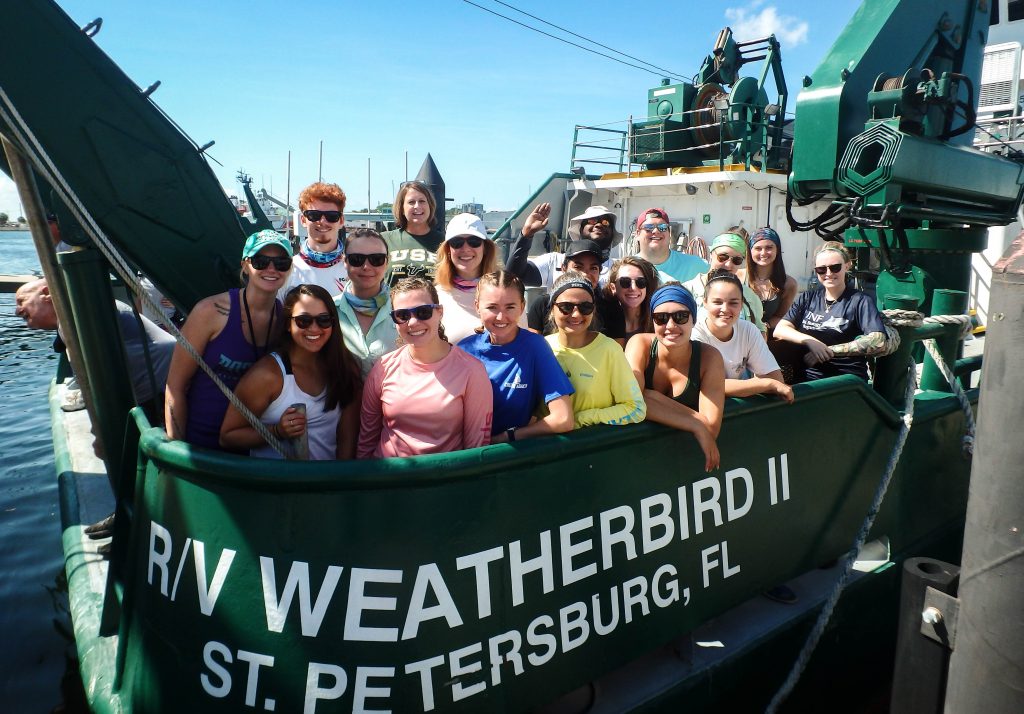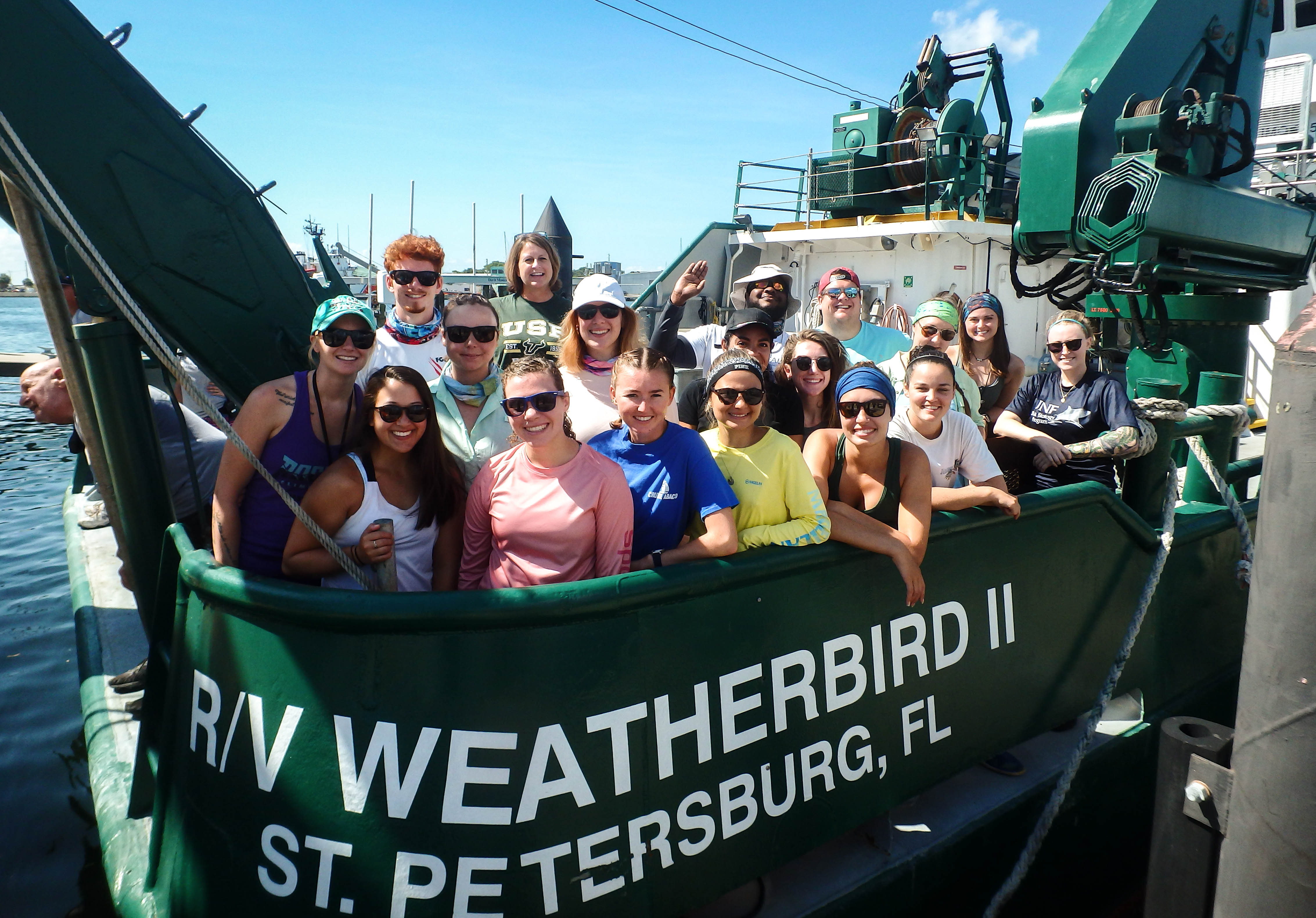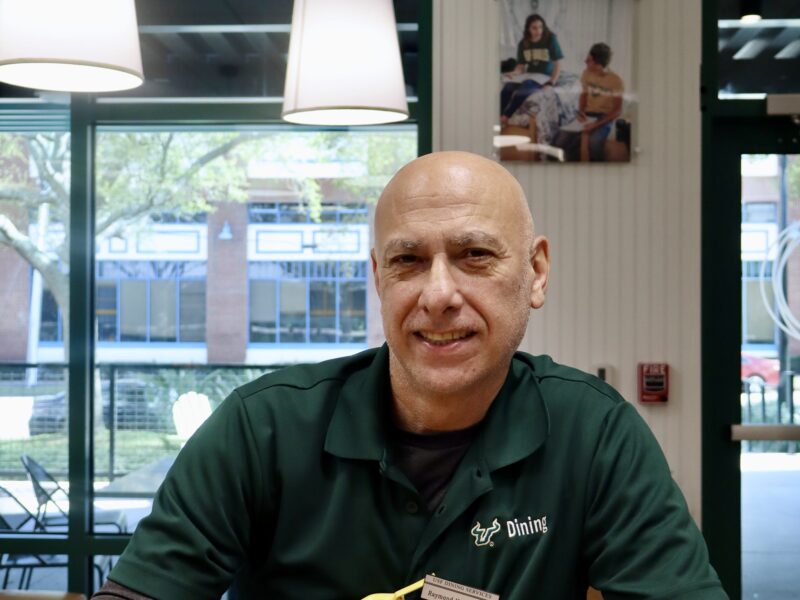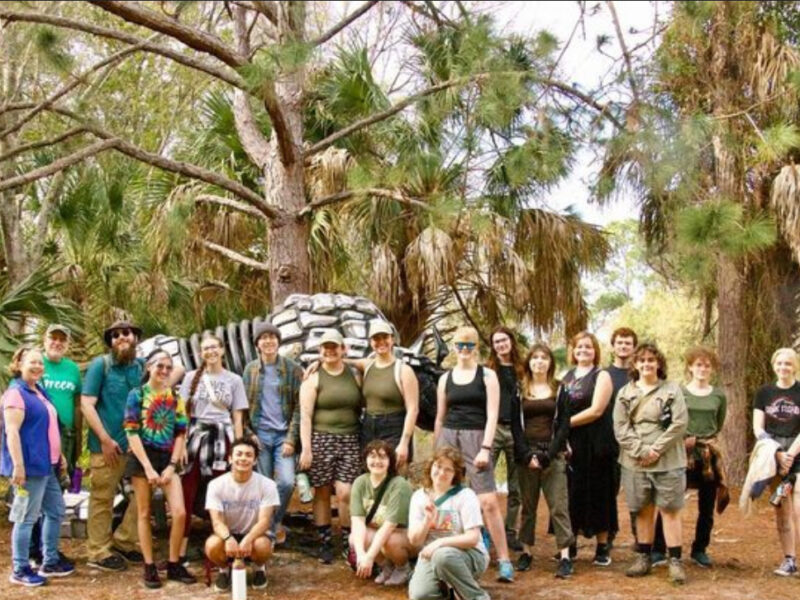
Courtesy of Abby Blackburn
By Kamryn Elliott
In a biological excursion spanning five and a half weeks, a group of 16 students spent last summer exploring various ecosystems.
Shark tagging, alligator identification and bird surveying, to name a few.

Courtesy of Abby Blackburn
These students came from five Florida universities and traveled through the state for a marine field studies course that was sponsored by the Florida Institute of Oceanography.
The Institute, which is based at USF St. Petersburg, is an agency of the state university system.
The course is a collaborative effort among the University of North Florida, University of West Florida, Florida Gulf Coast University, Florida Atlantic University and USF St. Petersburg.
Each university had a specific ecosystem for the week. UNF covered diverse beach systems and the Atlantic. UWF covered wetlands; FGCU, estuaries and seagrasses; and FAU, coral, algae and fish. At USF St. Petersburg the focus was open ocean, with study on Weatherbird II, a research vessel.
“It’s a rigorous course with around 40 hours per week, and it is very competitive,” said Dr. Heather Judkins, an invertebrate zoologist and associate professor in the Department of Biology at USF St. Petersburg.
Students need to fill out an application with an essay and their transcripts to be considered. Preference is given to juniors and seniors, but it is open to underclassmen as well.
Each university is delegated a certain number of student slots. If empty slots are left over, they are divided among the schools, and students are selected from a waitlist.
“I was actually part of the second draft of students competing for an empty spot,” said Abby Blackburn, a student at USF St. Petersburg studying biology with a concentration in marine biology and a minor in chemistry and geographic information systems.
The course is highly competitive for a reason. Each week the students were tasked with collecting samples using marine science techniques and surveying and identifying land and sea life. There were also tests.
“Our main professor for the week would come up with a way to teach us, so sometimes that would be an actual test or other times it would be identifying everything in a room,” said Blackburn.
Students were split into four groups for a final project that covered certain topics: salinity/dissolved oxygen, total suspended solids, nitrates/chlorophyll and micro plastics. The groups took the samples together but produced their final projects separately.
On the final day, the groups presented their projects to the professors from each university and donors from the Florida Institute of Oceanography.
There were many professors since students were at a different location each week. Teacher assistants and a graduate assistant were also present.
“We have a graduate assistant that attends the course, and this person can come from any one of the universities – whoever is best fit for the role will get it,” said Judkins.
The graduate assistant this summer was Amanda Schaaf, who took the course when she was a student and was a teacher’s assistant during the course in 2018.
“She bought us food when there weren’t cafeterias nearby, was in charge of room assignments, helped us find locations, drove some of us to where we needed to go for the day if travel was required, and helped with field research. We were lucky to have her,” Blackburn said.
The students had five intensive weeks and gained a lot of knowledge from the experience.
They credit the course as well as the institutions.
“It strengthened my resolve to do marine work and made me realize how much I wanted to do field work,” said Dennis Deeken, a senior who will graduate this month with a biology major and a concentration in marine biology.
“It’s great for networking and honing in on what you want to do with your degree,” said Blackburn.
Judkins said students have reached out and credited the course because it helped them after graduation.
Deeken stressed the course is a wonderful opportunity for ambitious students.
“One of the professors mentioned that there’s really nothing like this in the nation where you have five universities working with a scientific institution to create a college course,” he said.
For more information on the course visit https://marinefieldstudies2019.blogspot.com.



